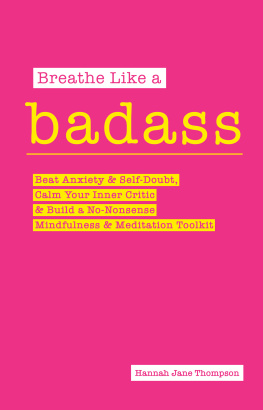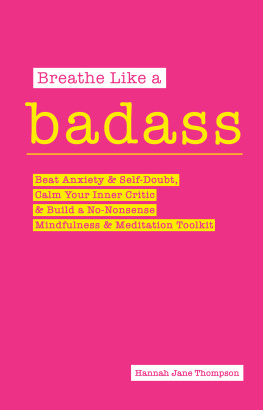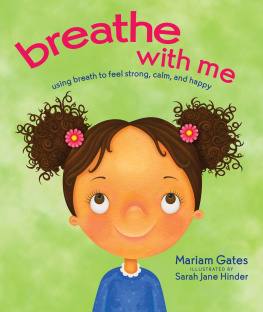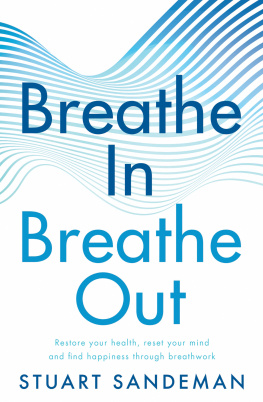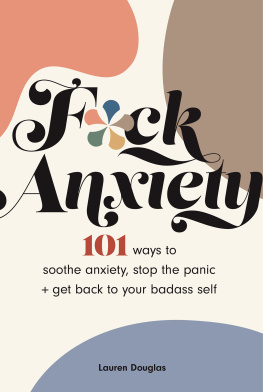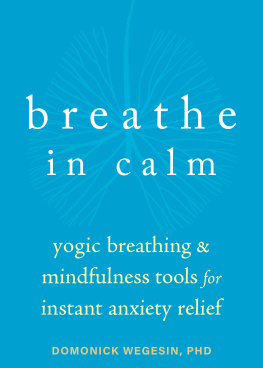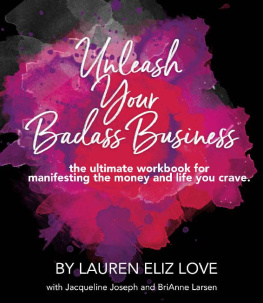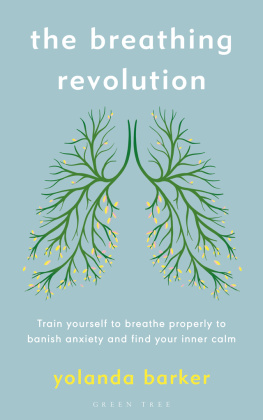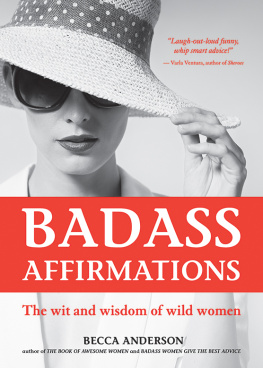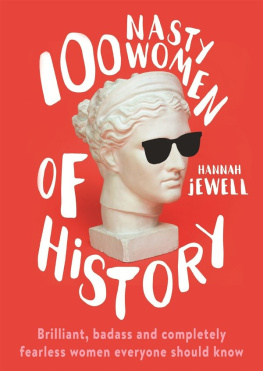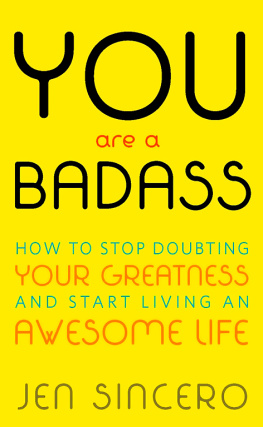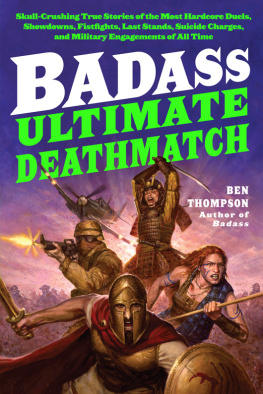


A Trigger Book
Published by Welbeck Balance
An imprint of Welbeck Publishing Group
20 Mortimer Street
London W1T 3JW
First published by Welbeck Balance in 2021
Copyright Hannah Jane Thompson, 2021
Hannah Jane Thompson has asserted her right under the Copyright, Designs and Patents Act, 1988, to be identified as the Author of this work.
All rights reserved. No part of this publication may be reproduced, stored in a retrieval system, or transmitted in any form or by any means, electronically, mechanical, photocopying, recording or otherwise, without the prior permission of the copyright owners and the publishers.
A CIP catalogue record for this book is available from the British Library
US eBook ISBN: 978-1-80129-038-8
UK eBook ISBN: 978-1-78956-289-7
Typeset by Lapiz Digital Services
Note/Disclaimer
Welbeck Balance encourages diversity and different viewpoints. However, all views, thoughts, and opinions expressed in this book are the authors own and are not necessarily representative of Welbeck Publishing Group as an organization. All material in this book is set out in good faith for general guidance; no liability can be accepted for loss or expense incurred in following the information given. The author of this book has sought to be as inclusive and sensitive as possible to people of all experiences, abilities, faiths, genders, sexualities, ethnicities, backgrounds and beliefs. In particular, this book is not intended to replace expert medical or psychiatric advice. It is intended for informational purposes only and for your own personal use and guidance. It is not intended to diagnose, treat or act as a substitute for professional medical advice. Meditation can work as a complement to therapy and mental health treatment plans, but not as a replacement for them. Those with severe mental health issues should approach meditation with caution; and if needed, only under the supervision of a professional. The author is not a medical practitioner nor a licensed therapist and professional advice should be sought if desired before embarking on any health-related programme.
www.welbeckpublishing.com
About the Author
Hannah Jane Thompson is a qualified meditation and mindfulness teacher, and certified life coach, whose training is in mindfulness-based cognitive therapy (MBCT), and the principles of Theravada Buddhism.
She runs Breathe Like A Badass, an online personalized meditation service helping ambitious-but-anxious women all over the world beat stress and anxiety, calm their inner critic, do more of what they love without burnout and actually enjoy life.
Hannah discovered meditation herself over a decade ago, after years of struggling with anxiety, low self-worth, bad breakups, lack of career direction, and even less self-compassion or self-belief. It saved her life, and now she helps others discover it too.
To Oli, my rainbow in every storm.
To my parents, who always pick up the phone.
And to everyone brave enough to sit with ourselves, look inward and choose compassion. We are all badasses.
Contents
Introduction
What Does Breathe Like A Badass Even Mean?
You can be in a huge crowd, but if you dont feel like you can trust anyone or talk to anybody, you feel like youre really alone.
Fiona Apple, singer-songwriter
It is bizarre that I am writing a book with the word badass in the title because, for most of my life, I have not felt remotely badass. Ten years ago, I wouldnt have even known what it meant.
I was what I would call an ambitious-but-anxious woman. I was a journalist working 9-to-5 in a central London office, with loads of qualifications, supportive parents, and what looked like a great life. But I was slowly suffocating under inexplicable sadness, anxiety, depression, and what I felt was shameful misery; with a negative and bitchy inner critic running the show, and a feeling that my life was happening somewhere else without me.
I knew I had potential, and had always worked hard. I knew I wanted a happy, big, juicy, successful life. I knew I wanted my career to be meaningful. I knew there had to be more to existence than feeling totally stuck in my job unproductive, unfulfilled, numb, constantly second-guessing myself and feeling miserable AF but I didnt know how to even begin to calm the swirling anxiety inside my mind. Id worked for years for the life I had. I told myself this was just how it was I just needed to cope better. And I was utterly ashamed for having such a privileged life, and still hating it.
Growing up, Id believed that when things get tough, you should get tougher. Try harder. Sleep less. Get your shit together!, my brain shouted at me a thousand times a day. Like so many ambitious, high-achieving people, throughout my life Id believed that if I was harsher to myself stayed at my desk a little longer, forced myself to keep going, ignored my feelings, suppressed the real me, and tried to mould myself into who I thought I should be or who someone else told me I should be that somehow, Id succeed... whatever that meant.
So I stayed small, stuck, jealous, bitter, anxious, scared, full of self-doubt and pain and excuses, getting nowhere fast. And when it got really bad, I thought I should just have a G&T or some chocolate, have a laugh, and lighten up. After all, we cant all be happy, all the time, can we? That was it. That was the extent of my emotional education. And it worked until it didnt.
A life problem
I never had a drinking problem. But I did have a life problem. Depression, anxiety, panic, zero ability to cope with anything. I cried on trains, got stupid stuff wrong at work, isolated myself from friends, avoided mirrors in case I saw my own reflection, and fantasized about maybe accidentally-on-purpose getting hit by a London bus so I wouldnt have to live inside my own brain for a single day longer.
I woke up crying every day, and felt like I was failing at everything. I even developed this weird image of a terrifying black whirlpool in my head. I didnt know how to stop it. And I knew I was privileged. So I reckoned the problem had to be with me.
I vividly recall standing on the platform of the District Line at Victoria Underground Station, feeling the raised concrete dots beneath my feet, my eyes transfixed by the yellow MIND THE GAP writing at the edge of the platform, unable to muster the conviction to jump in front of the train. I was so devoid of compassion for myself that I didnt think I deserved to die. I was too boring, stupid, lazy and predictable for that. It would just annoy everyone, and Id probably fuck it up anyway. Maybe thats a sign that I hadnt yet hit rock bottom. But it felt pretty damn low to me.
And if any of that sounds remotely familiar from low-level anxiety to full-blown depression know this: Youre not alone, and there is hope . I know there is, because on one random grey evening, I saw an article poking out from one of my then-flatmates piles of magazines. As I remember it, the headline said: Think yourself happy.
I was sceptical, but something sparked in my brain. I thought thinking too much was my problem. But this article said you could actually use thinking to help yourself. What? Doubtfully, I read the interview with this bald dude, a former Buddhist monk, about his little-known London-based meditation app and events company, Headspace. (Headspace is now a multimillion-dollar behemoth, with more than 65 million downloads. But it wasnt then.) The article changed my life. Maybe, just maybe, I didnt deserve to feel so utterly crap, and could question that negative inner voice. Maybe I could stop the swirling black whirlpool in my head. I learned I wasnt alone in feeling like this. The big questions I was struggling with had answers.
Next page
